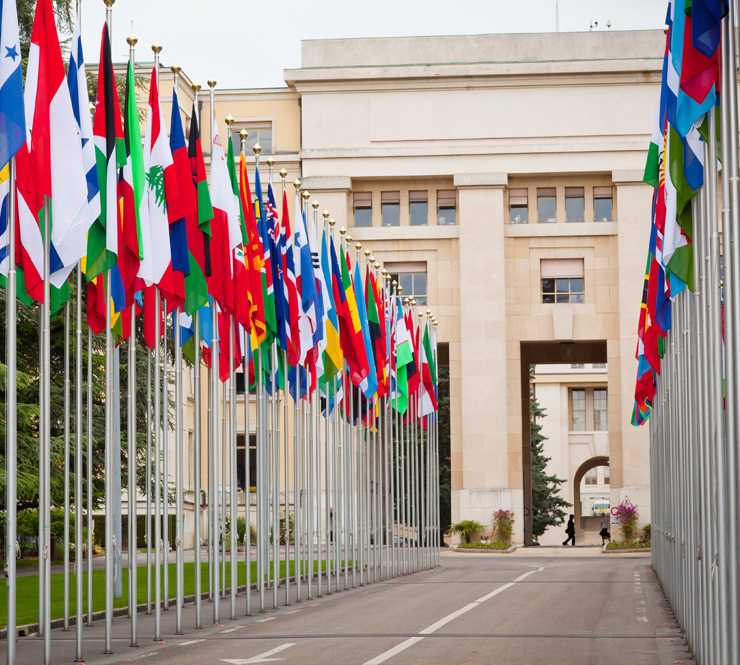COURSE DETAIL
COURSE DETAIL
This course examines the critical role of emotions in international relations. The first part provides a foundational understanding of emotions, focusing on their social and political dimensions. It explores the concepts of group and collective emotions, shedding light on how emotions operate at the societal level. The second part of the course delves into the role of emotions in intergroup conflicts. It analyzes how emotions such as hatred and fear can escalate conflicts, while emotions like empathy and collective guilt can facilitate reconciliation and conflict resolution. The final part explores the influence of emotions on contemporary global issues. This includes their role in the rise of populism and their impact on collective responses to climate change. Through this comprehensive approach, students gain a deeper understanding of how emotions shape international dynamics and global challenges. The course is graded on a pass/fail basis only.
COURSE DETAIL
This course introduces the fundamental principles of finance and the basic structure of capital markets. It examines how financial markets (such as bonds, stocks or foreign exchange) and financial institutions (such as banks and mutual funds) work and explore the role of money. It then examines the foreign exchange market and how to cope with exchange rate risk. Finally, the course focuses on the financial services industry by exploring topics such as mutual funds, Financial Technology (FinTech), robo-advisors, cryptocurrencies or blockchain. Key concepts and applications include interest rates, exchange rates, derivatives, the time value of money, the conduct of monetary policies, the difference between passive and active investing, and crypto-assets.
COURSE DETAIL
This course introduces the Swiss legal order and the various branches of law. It covers the basic concerns and terminology of lawyers; basic knowledge of contract law; how to read and understand legal provisions, in particular the Code of obligations; and how to identify legal problems in a case study and to develop the reasoning of such problems.
COURSE DETAIL
This course explores and discusses the general principles and the key instruments of international intellectual property law. It also discusses the challenges of solving international intellectual property disputes before state courts or other dispute settlement bodies (including arbitration and alternative dispute resolution systems). It offers an opportunity to analyze substantive intellectual property law issues, procedural law and enforcement issues (including conflict of laws in intellectual property disputes) from a comparative perspective in the light of international legal instruments (specifically WIPO and WTO materials) and of case law coming from various legal systems (particularly North America, Europe, and Asia). The course is open to students who have basic knowledge of intellectual property law and is designed for advanced law students.
COURSE DETAIL
In today's world, challenges are incredibly complex, multifaceted, and often intersectoral. Given the complexities and interdependencies of the 21st century, scientific disciplines and their siloed knowledge production practices are no longer sufficient to fully grasp global problems and find solutions to them. Yet they remain the dominant knowledge structures through which the world is analyzed and explained. This course first explains the structuring and evolution of scientific disciplines. Then it addresses the notion of interdisciplinarity and the tools it offers for a more holistic understanding of international relations.
COURSE DETAIL
This course explores the main concepts and principles of international environmental law. It looks at how international environmental law has emerged and developed, in particular by emphasizing the role and contribution of international courts and tribunals. The course also deals specifically with the legal regimes that have been shaped in order to preserve the global environment in different fields (climate change, biodiversity, desertification, water, ozone, chemical products, air pollution, genetically modified organisms, nanotechnologies). With the emergence of the concept of sustainable development, international environmental law is now at the crossroads of different regimes. In this context, the course analyzes the relationship between international environmental law and international trade (and/or investment) law as well as the relationship between international environmental law and human rights.
COURSE DETAIL
This course provides an introduction to the analysis of income and wealth distribution, its relation to macroeconomic performance and technical change, and how different policies are linked to distributional outcomes. The first part of the course presents statistical tools for measuring inequalities and, based on these tools, examines the historical trajectory of income and wealth distribution in developed and developing economies. It also discusses how income and wealth inequalities intersect with other socioeconomic factors such as gender and race, and how distribution is affected by the globalization of economic activity and migration. The second part of the course surveys the Classical, the Keynesian, and the Neoclassical approaches to distribution, economic growth, and technical change, and how these approaches provide different explanations for the increasing inequalities and the stagnation of output and productivity growth of the last decades.
Pagination
- Page 1
- Next page

